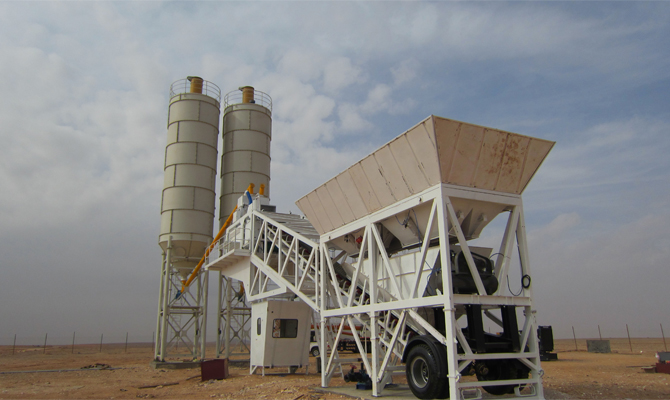Generally speaking, vertical mobile concrete mixer plants are suitable for large industrial cities and material supply bases; horizontal concrete mixing plants are suitable for medium and small cities far from material supply bases; and mobile concrete mixing plants are suitable for medium and small projects or maintenance projects with inconvenient traffic and narrow pavement.
According to the layout of concrete mixing plant equipment, it can be divided into vertical (also known as gravity type, tower type and single-step type), horizontal (also known as horizontal, low-order and double-step type) and mobile concrete mixer plant. The following three kinds of mobile batching plant layout are described in detail, hoping to help you understand the mobile batching plant layout!
In the vertical mobile concrete mixer plant, the material only needs to be lifted once, and then falls to each process by self-weight. The advantages of this type of concrete mixing plant equipment are high efficiency, small floor area and easy to implement automation; its disadvantages are complex structure, high manufacturing cost and high installation height.
In the horizontal mobile concrete mixer plant, the material needs to be lifted twice. First, the material is lifted to the hopper. After weighing, the material is lifted again and added to the mixer. The advantages of this type of concrete mixing plant equipment are simple structure, low investment and low building height, while the disadvantages are that the materials need to be upgraded twice, low efficiency and low automation.
Mobile concrete batching plant installs the feeding, storage, weighing, mixing and unloading devices on the same base. The advantages of this type of portable concrete mixing plant equipment are compact structure, easy to carry, can be directly close to the construction site, thus reducing the transportation distance of concrete and improving the economic performance.
